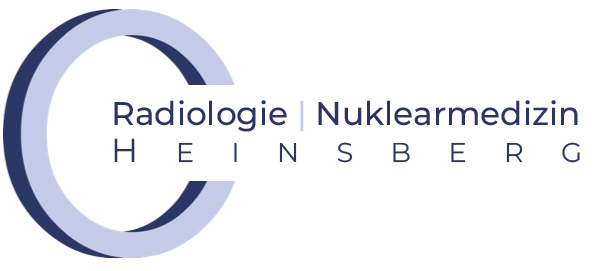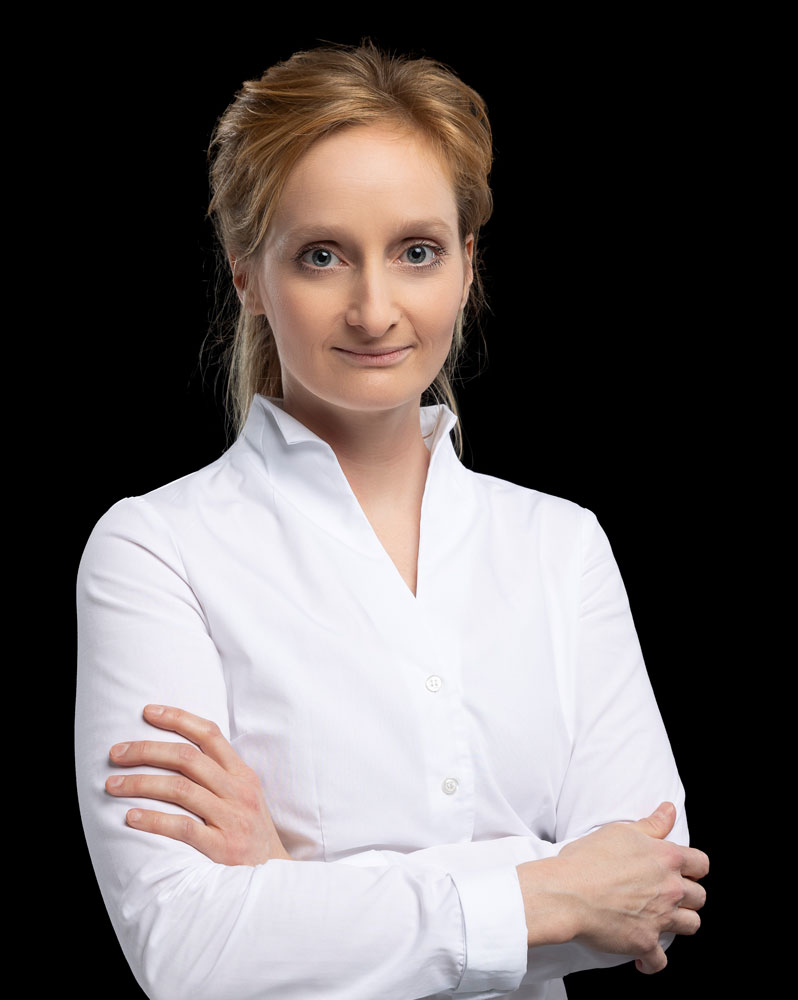DEMENCE DIAGNOSTICS
Dementia
‘Away from the mind’ or ‘without mind’ - this is the literal translation of the term ‘dementia’ from Latin. This anticipates the main characteristic of dementia, namely the loss of mental capacity.
At the beginning of the disease, there are disorders of the short-term memory and the ability to memorise; as the disease progresses, the contents of the long-term memory that have already been memorised also disappear, so that those affected increasingly lose the abilities and skills they have acquired during their lives. But dementia is more than a ‘simple’ memory disorder. It affects a person's entire being: their perception, behaviour and experience
Causes of dementia
Dementia can have a variety of causes. A basic distinction is made between primary and secondary forms of dementia. The latter are the result of other underlying diseases, usually located outside the brain, such as metabolic disorders, vitamin deficiencies and chronic intoxication caused by alcohol or medication.
These underlying diseases can be treated or even cured in some cases. It is therefore often possible to reverse the symptoms of dementia.
However, secondary dementia only accounts for around 10 per cent of all cases of the disease, with primary dementia, which is usually irreversible, accounting for 90 per cent. Here again, the Alzheimer's type dominates. This is responsible for around two thirds of all dementia cases. This is followed by vascular dementia, which accounts for around 20 per cent, although scientists assume that mixed forms also play a not insignificant role. Around 15 per cent of patients suffer from these.
Status: 12 February 2024
Source: BMG
What can we do for you in this context?
We carry out an MRI scan of the brain and can see whether another brain disease such as a stroke, tumour or chronic inflammation is or may be the cause of the symptoms, and we can also assess brain shrinkage with the help of artificial intelligence. Depending on whether and in what way your brain has shrunk, we can draw conclusions about the type of dementia and its prognosis (development over time). An inconspicuous result would give us information about the probability of dementia in the coming years.
We have been working closely with the German company Jung from Hamburg for years. Our MRI data is analysed there anonymously and the results are forwarded to us. The final assessment is carried out by our doctors.
You don't need to worry about a computer making diagnoses. Data security is of course also guaranteed. We will be happy to discuss the results with you and, if necessary, your relatives.
Further detailed information, including scientific information and sample examinations, can be found in the appendix.
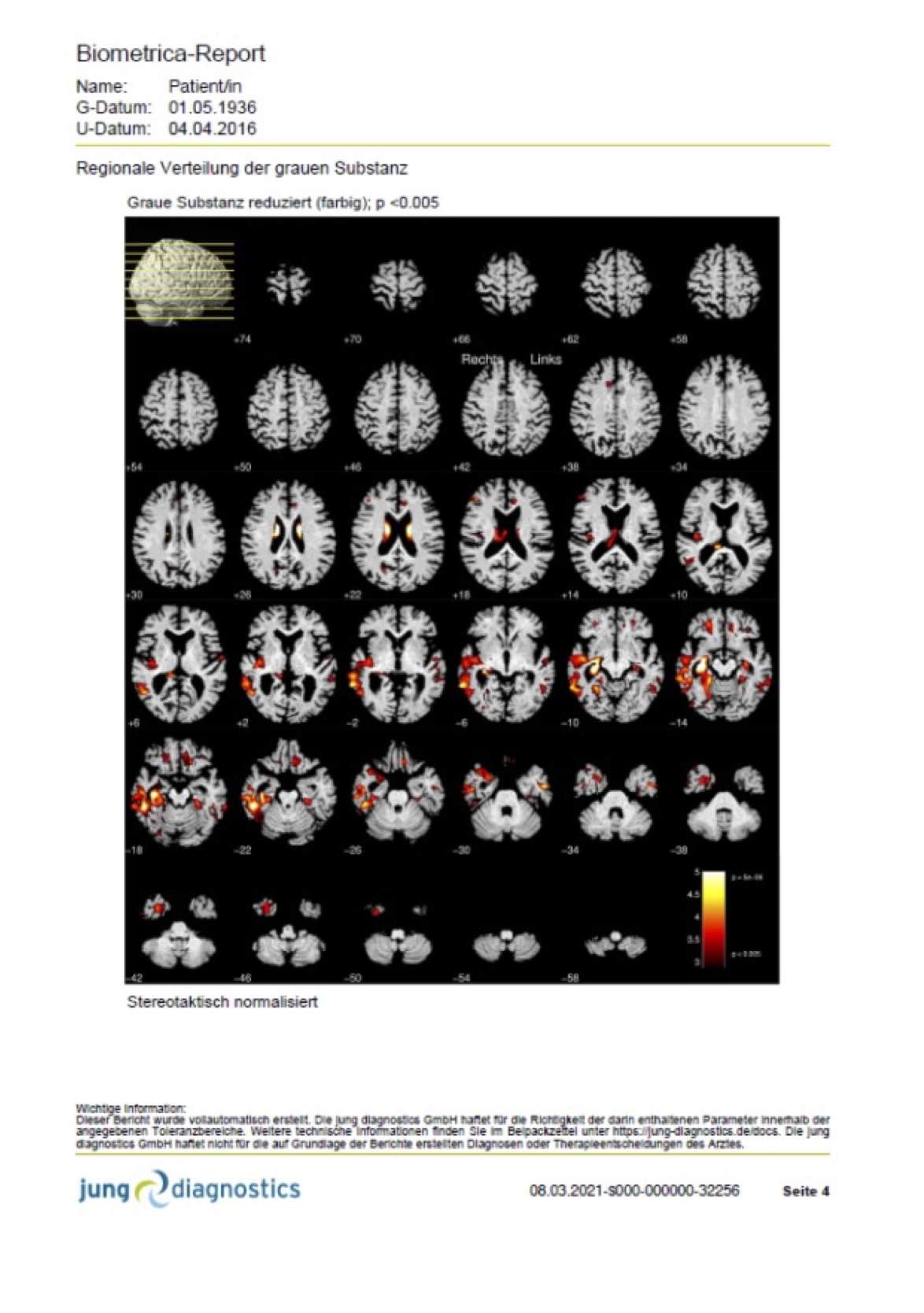
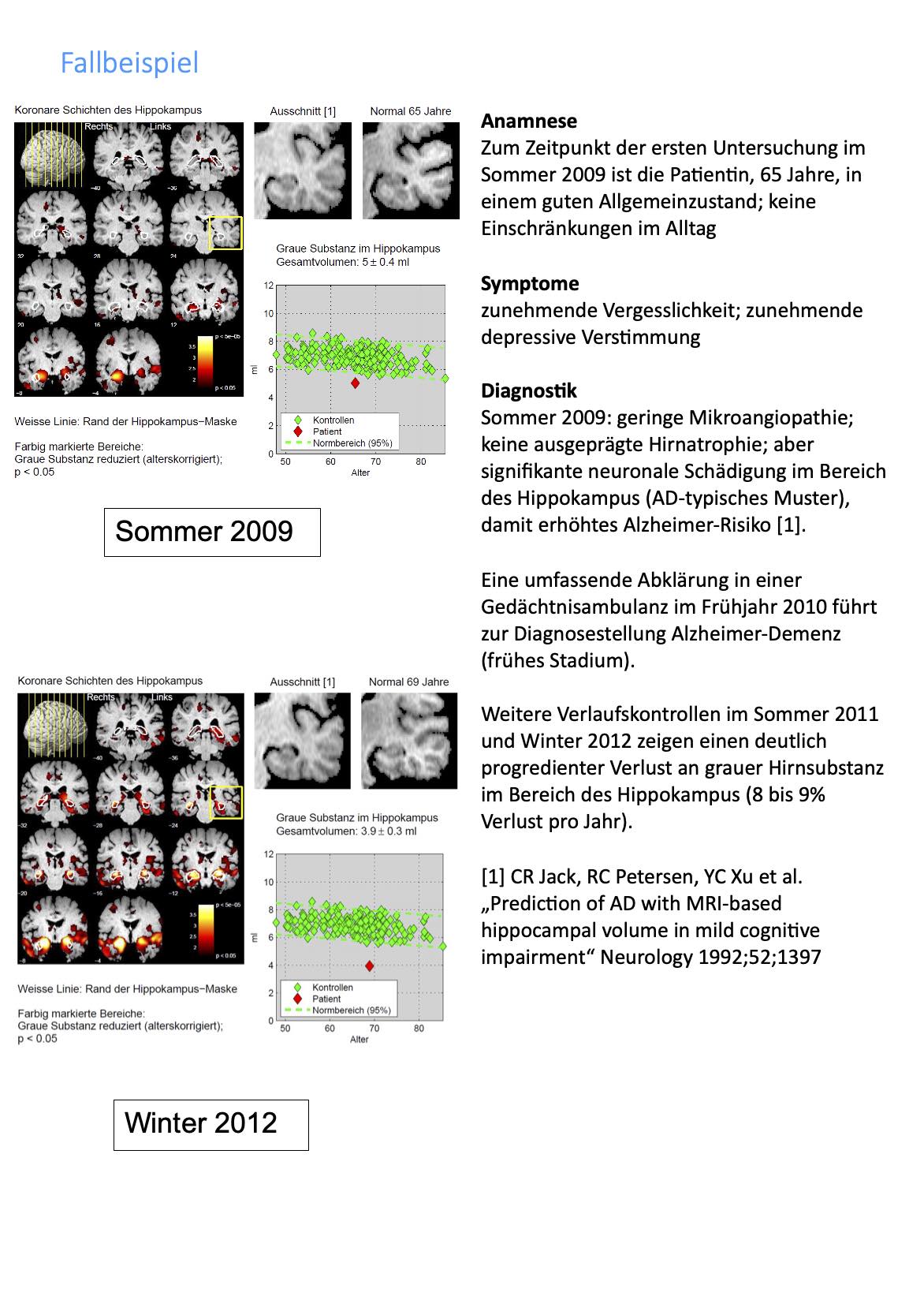
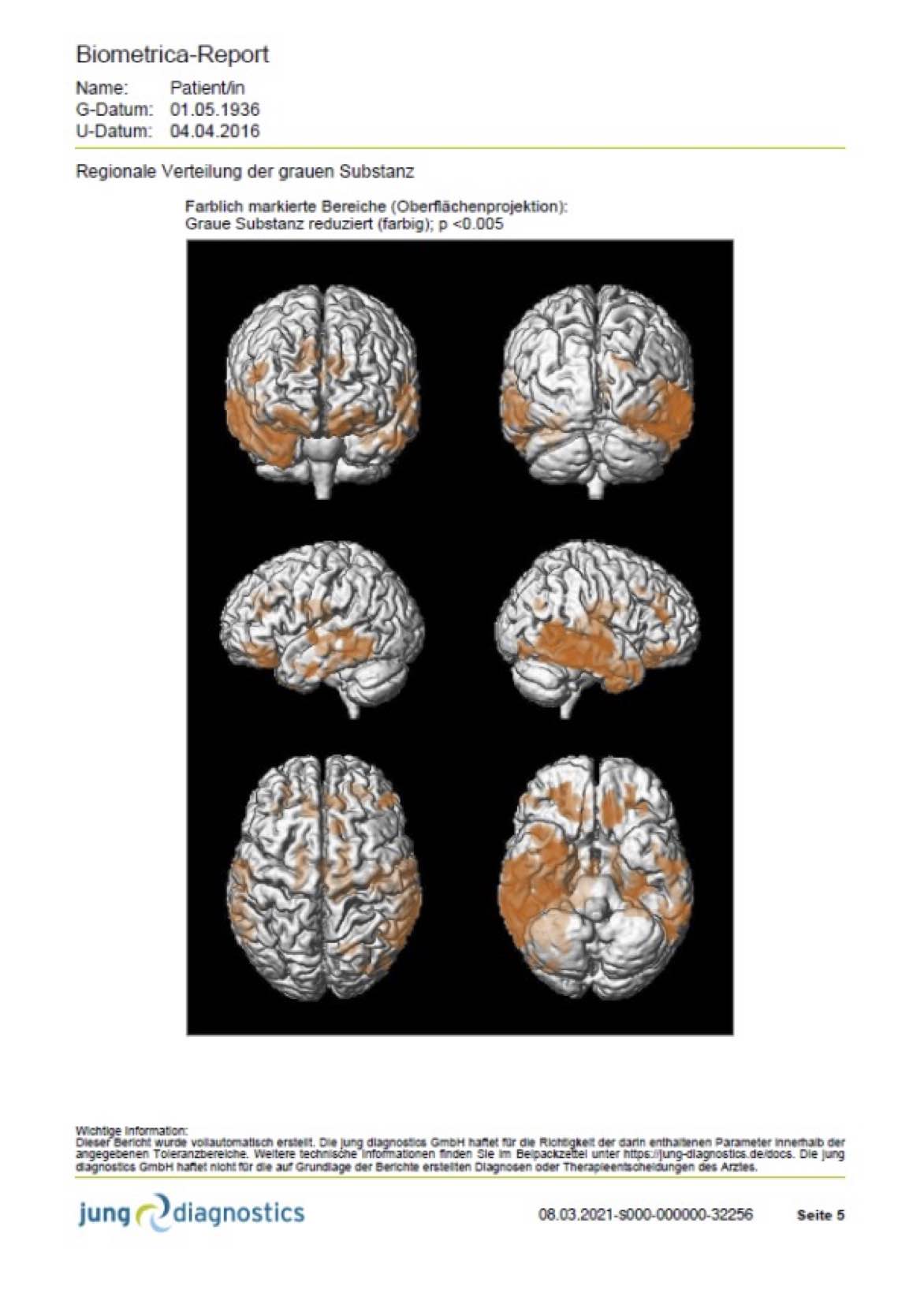
Demenzdiagnostik:
ALL INFORMATION AT A GLANCE
Technology
With MRI scans, we can create high-resolution images of the brain to identify changes in the brain structure that may indicate dementia. This enables early diagnosis and more precise characterisation of the disease.
